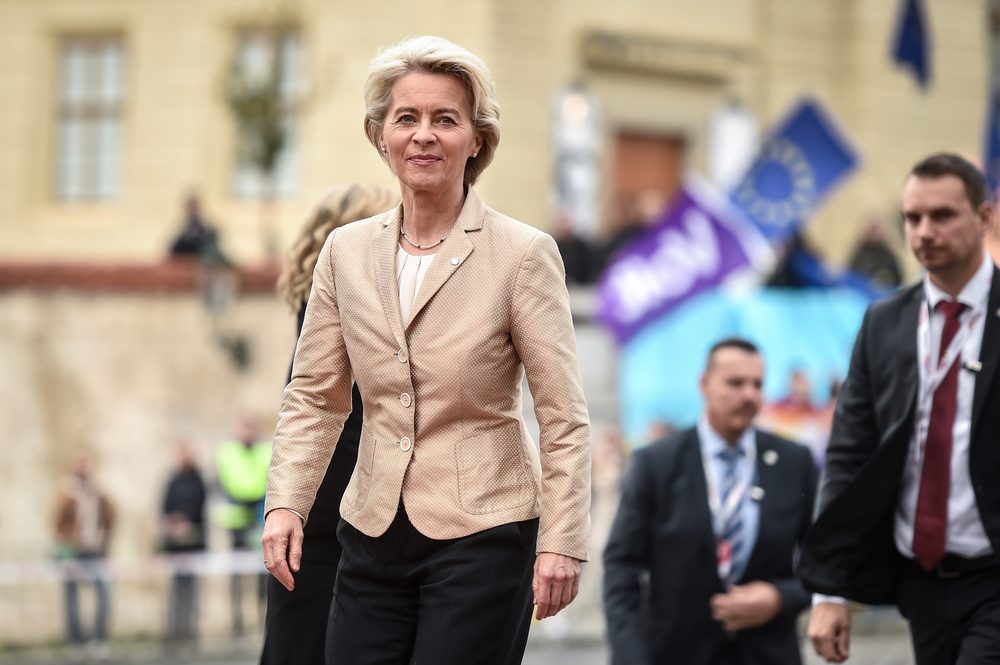
European Commission President Ursula von der Leyen has been accused of potentially compromising ongoing EU investigations into the use of Pegasus spyware by the Greek government after holidaying at the home of Greek Prime Minister Kyriakos Mitsotakis in Crete earlier this month.
Von der Leyen and her husband Heiko von der Leyen spent three days at the Cretan holiday home of Mitsotakis last weekend on a visit that included a trip to nearby archaeological museums and a boat tour of the beaches of Sfakia. Both von der Leyen and Mitsotakis belong to the same centre-right EPP group, with the visit originating from a personal invitation from the Greek prime minister to the Commission president.
The visit has, however, incurred the wrath of federalist MEP Sophie in ‘t Veld. She criticised von der Leyen for accepting the personal invitation in light of multiple EU investigations into the Greek government around the use of Pegasus spyware against political opponents, the recent Tempi train disaster, and alleged mistreatment of migrants.
Enforcing EU law is a key task of @EU_Commission. Neutrality and objectivity are essential. A private holiday stay of the EC President at the home of a PM may compromise EC decision making. My call for @Europarl_EN debate and @EUombudsman opinion pic.twitter.com/t5ZBZjfzCb
— Sophie in 't Veld (@SophieintVeld) August 17, 2023
In a social media statement, in ’t Veld said that von der Leyen’s stay with the Greek prime minister may “compromise the objectivity” of the Commission when dealing with Greece and that the Commission president should maintain a “professional distance” when it comes to dealing with individual heads of state along with other commissioners.
In ’t Veld concluded by asking whether the EU ombudsman should be asked to review von der Leyen’s decision to accept the holiday invitation for fear of future legal challenges.
This is not the first time von der Leyen has been publicly chastised for personal indiscretion while in office. The Christian Democratic politician’s actions during the COVID crisis, in particular her personal interaction with Pfizer executives, have warranted severe criticism from both the press and MEPs, who blame her for the botched EU vaccine procurement process.
Von der Leyen is approaching the end of her first term as Commission president, with speculation that she may accept an offer to become NATO secretary due to her positive relationship with the Biden administration.
The EU’s Civil Liberties Committee (LIBE), spearheaded by in ’t Veld, has been hot on the heels of the conservative Greek government over claims by opposition groups that members of the Greek security services had illegally wiretapped human rights groups using Pegasus software.
In a subsequent tweet, in ’t Veld speculated that the Commission’s alleged “conspicuous silence” about the murder of the journalist Giorgos Karaivaz, who was investigating links between the Greek government and criminality, was motivated by the friendly relations between von der Leyen and the Greek prime minister.
The accusations have been downplayed by Mitsotakis and his New Democracy party, who say that Eurocrats simply wish to weaponise the issue to punish Athens for non-compliance with EU diktats.
New Democracy comfortably romped home in recent elections, which saw both the centre and radical Right grow as the Greek Left, led by Syriza, splintered with new electoral rules giving Mitsotakis and his party additional seats in the Greek Parliament.
Many leftist commentators theorise that Greece could be the next major European country to embrace right-wing rule as Athens clamps down on migrant flows in the face of dwindling left-wing opposition.
